The full might of the Indian Republic was on display on this 26th January. No, not just in the Republic Day Parade but even more prominently at Lal Chowk in Srinagar! The BJPs plan to hoist the Tricolour in Srinagar was torpedoed by the central and State government in an awe inspiring display of the state’s might. A complete special train load of Bhartiya Janata Party (BJP) workers from Karnataka were about turned even as they slept. Others, who tried to enter the state from Punjab, in their thousands, were intercepted and imprisoned. Those who made it surreptitiously to the state capital were roughed up and put behind bars. It was an impressive display of the state’s will and power to assert its authority. It ensured that the Tricolour did not fly in Lal Chowk on this Republic Day.
It was a feat that left security experts a little confused. Just a month back, we had been remonstrating with China over the issue of stapled visas to Indian citizens of J&K origin. China has clearly resiled from its neutral stand during the Kargil War and was trying its utmost to underline the fact that Indian sovereignty over the state of J&K was disputed. China then went on to pump 11,000 combat troops into the disputed territory of Gilgit – ostensibly for flood relief, but actually for constructing the Strategic Karakoram rail-road corridor to Gwadar and more ominously for the boring of deep tunnels to house the medium range Dong Feng 21D aircraft carrier killer missiles that could target American and Indian naval ships in the Persian Gulf and Arabian Sea. The most stinging diplomatic rebuke came with the denial of visas to India’s Northern Army Commander on the plea that he was in charge of the disputed state of J&K. It was noteworthy that the same logic was not applied to India’s Eastern Army Commander, who is equally in charge of the state of Arunachal Pradesh, which China claims is also in dispute. J&K is therefore considered a shade more disputed by the Chinese than even Arunachal Pradesh. These are very sinister signals and should generate considerable disquiet.
Even a cursory look at the map will highlight that from the military point of view, the only Indian Territory where China and Pakistan can jointly attack India, is J&K. In the light of this, the induction of Chinese troops into Gilgit (a disputed territory) is a matter of very serious concern that has been glossed over entirely in this country. Americans like Selig Harrison have expressed far greater concern over this troop induction into a disputed area than the Indian government or “Radiad” sections of the media.
The Indian state should therefore be very concerned and calibrated about the signals that it sends to the outside world about the state of J&K. It is in this context that the J&K State government’s recent determination to see that the National Flag would not be allowed to fly over Lal Chowk on this Republic Day has sent rather confusing signals about our determination to uphold our sovereignty over this state. This action inadvertently seems to underline the status of J&K as disputed territory, where the legitimacy of Indian sovereignty is apparently (as highlighted by the Omar Abdullah’s governments own panic response), in serious question. This is a very questionable thesis. After all some 60% of the states population had turned to vote in the state Assembly elections which were manifestly free and fair. Is India’s hold over the state so tenuous that the very hoisting of an additional National Flag could lead to unprecedented turmoil? In actual fact such fears have turned out to be highly exaggerated and imaginary.
Now that the event is over, what was the apprehension of the state government? What were the intelligence inputs? Did it anticipate that hoisting of the National Flag in Srinagar Lal Chowk would be so provocative (not just for the separatists but the entire people of the valley) that a bloodbath would result? There was indeed, no such bloodbath. The state government’s reading and analysis of last year’s disturbances therefore seems seriously flawed. The provocation last year had came from the perceived high handedness of the State Police and more specifically the Paramilitary forces. It was a localized grievance that led to an intense but short-lived explosion of outrage in the urban areas.
To utilize this public hyperventilation against localized perceptions of security forces’ excesses, to justify and legitmise the separatist agenda in J&K is a serious and tragic mistake. It calls into question the state government’s grip on the situation in the state and its analyses of the causative factors of last year’s agitation. The state govt has exhibited a shameful pusillanimity in the face of the separatist threat and highly exaggerated its power and potential. Its attitude has been craven and weak. In the days ahead it will need to display much greater will to confront and isolate the communal and separatist elements and uphold the Constitution in the face of the modern votaries of the two nation theory.
The state government’s unstated assumption in almost fainting with fear at the thought of just one more national flag being unfurled in the valley, was that the Indian state has apparently lost all legitimacy in the Kashmir valley. The loss of legitimacy was deemed so extensive, by the state government that the mere hoisting of just one more national flag in a public place could bring the state down in a holocaust of unprecedented violence. If this was indeed the perception of the state administration, it was patently flawed and vastly exaggerated. It has been proven to be absolutely unfounded. In the event nothing happened. It highlights the faulty judgment of the state government. It seemed too overawed and terrified by the separatists to be able to think objectively. If the Flag Hoisting had been allowed, it would have been a non-event. The “Radiad” media and the state government however lionized Yasin Malik and his rabid supporters’ slogans of “Ragde! Ragde! India!” (Trample! Trample! The Indian Flag!)
The lionizing of such rabid separatist elements by the national media must be stopped! Unwittingly, we are furthering the Chinese argument that the entire state of J&K is disputed, in fact, so disputed that one extra Tricolour flown there can bring the house of cards crashing down. This is a preposterous suggestion. There is an urgent and pressing need to craft a bipartisan consensus on issues like J&K and terrorism. We must, as a nation, speak in one voice. In this day and age, the shrill political cacophony that we raise internally is equally heard by the rest of the world with amusement and undisguised glee. In the bargain we emerge looking fairly ridiculous. Being a democracy does not translate into an insane keenness to dis-invent ourselves simply to earn the applause of some civil-liberties NGOs in Europe.
----------------------------------------
Published Date : 7 February, 2011


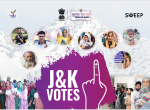

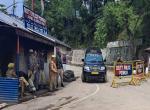
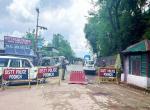
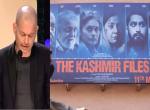
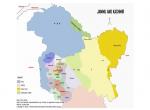

Post new comment